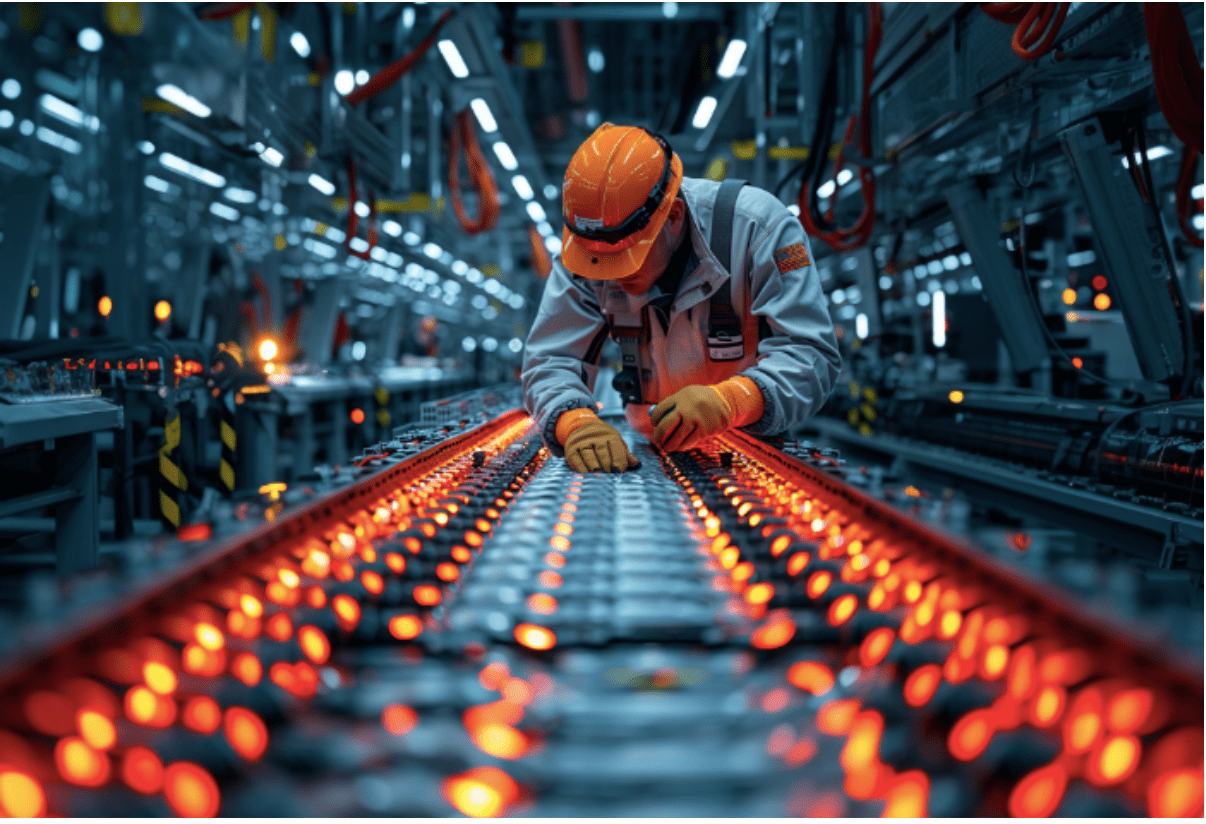Business
The life story of the founder of JKMT, Javed Khan

JKMT was founded in 2017 by Javed Khan. In his words,” The graft is often bred into us as teens and into young adulthood, we are told to work as hard as we can to provide for ourselves, for families and a week holiday once a year.”
Javed was born on May 29,1998, grew up in Hackney, East London, his father was a mini-cab driver. He lost three close friends to knife crime at a very young age. Due to his father’s entrepreneurial spirit led him to achieve big.
He was pursuing BTech in Science, had a dream of University and 9-5 job in the business sector. The London craze of trading started when watched the film “The Wolf of Wall Street”. When 18, he started trading on NFX markets. He took a risk and invested £1000 from his savings which he gathered working part-time and lost it all in a matter of hours. His instincts were strong and he knew he could find success with this.
Till the next time, he became addicted to adrenaline and excitement of trading and invested £10k which his father saved for University. He lost it again.
He wised up this time, did research, and mastered his craft in the process. He started paying back his father while working full time at Dominos. In a matter of a few months, he cleared all his debt.
From going in debt, dropping out of college, living in a council house to clearing the debt, building a life in Dubai, he says,” The journey has been incredible.”
After cashing a 4 bedroom villa & Bentley Continental GT in Dubai his success is clear for the world to see. Swiss Audemars Piguet is his favourite watch brand. Javed saw success at a pretty young age.
The rise of JKMT has been impressive. He made over £352,000.00 profit in his first year of trading. He reached the pinnacle of his industry at such a young age. Javed proved that that “the sky isn’t the limit, your imagination is.”, when one is committed to his craft for a few years of your life, prioritising it, disciplining yourself leads you to achieve whatever you want in life.
He yearns to expand his investments into the real estate market. Also has the plan to share his wealth of knowledge and experience with other individuals, he has partnered with companies to build organisations in the trading industry. “I believe, the worst risk you can take when it comes to making money is by not taking any risks at all, that leap of faith to get you into a new world you haven’t discovered before. People say that the sky is the limit, but there are footsteps on the moon? I took that risk, that leap of faith”, Javed stated.
Business
Interview with Jason Ho, CEO of Teklium: A Vision for the Future of Technology

By Mj Toledo
There is a wealth of experience behind Teklium, and it is embodied in its chief executive officer (CEO), Jason Ho. His educational foundation was laid at National Chiao Tung University and Pennsylvania State University, where he developed his skills in electrical engineering. With over 400 patents to his name, he has played a key role in advancing semiconductor technologies and artificial intelligence (AI).
From leading custom chip design for the F35 Fighter Jet to innovating at Teklium, Ho’s work has been adopted by major corporations worldwide. In this interview, he shares his vision for the future of technology and how Teklium’s developments fit into this broader landscape.
Q: Hi, Jason. For those who may not be familiar with Teklium, could you tell us more about your company?
Jason Ho: Certainly. Teklium is a technology company focused on improving AI and semiconductor technologies. Our mission is to create self improving AI systems and hardware that can tackle various technological challenges and shape the future of multiple industries.
Q: You hold over 400 international patents, with one of your most notable innovations being hydrogen battery technology. What inspired you to promote this sustainable transportation solution?
Jason Ho: I’ve always been deeply interested in finding sustainable energy solutions, especially in transportation. Traditional lithiumion batteries have clear limitations, both in terms of performance and their environmental impact due to resource mining. Hydrogen batteries present a promising alternative, offering both environmental benefits and faster refueling times, which could make electric vehicles more practical and appealing.
Q: What drove you to focus on hydrogen battery technology specifically?
Jason Ho: My collaboration with Mark Bayliss, President of Visual Link, played a significant role. Mark introduced the concept of a closed loop hydrogen system, and our joint efforts resulted in the development of a hydrogen battery technology that we believe can provide a clean and safer alternative to lithiumion batteries. This inspired me to continue refining the technology, working with Visual Link to bring it to market.
Q: How do you see your company’s hydrogen battery technology impacting the electric vehicle industry in the next decade?
Jason Ho: I’ve thought about this a lot. Our hydrogen battery technology has the potential to revolutionize the electric vehicle industry by offering a more efficient and sustainable energy source. The ability to refuel quickly, combined with the technology’s adaptability to a wide range of temperatures, could make electric vehicles far more practical and attractive to consumers in the long term.
Q: Can you explain the significance and potential impact of Teklium’s closed loop hydrogen energy system on global energy consumption?
Jason Ho: The closed loop hydrogen energy system is groundbreaking because it enables onsite hydrogen generation through water electrolysis, eliminating the need for external supply chains. This drastically lowers energy consumption and minimizes environmental impact by recycling water in a continuous loop. The system offers an environmentally friendly solution for industries beyond transportation, including energy storage and telecommunications.
Q: What challenges do you foresee in scaling up hydrogen battery production, and how does Teklium plan to address them?
Jason Ho: Scaling up hydrogen battery production comes with significant challenges, including the development of necessary infrastructure, reducing production costs, and ensuring safety standards. At Teklium, we plan to address these obstacles by partnering with industry leaders to build the required infrastructure and by investing in research to lower costs. We’re also committed to implementing rigorous safety protocols to ensure the technology performs reliably.
Q: How does Teklium’s strategy for AI infrastructure differ from traditional approaches?
Jason Ho: At Teklium, we’re taking a different approach by exploring ways to develop advanced materials and technologies that could improve the performance and efficiency of AI infrastructure. We’re focused on moving beyond traditional silicon based systems and envision a future where we can create three dimensional chip structures that significantly reduce data movement and energy consumption. By integrating memory and processing capabilities, we believe we can revolutionize AI workloads.
Q: Teklium has ambitious plans for extending Moore’s Law. Can you elaborate on how these plans could transform the semiconductor industry?
Jason Ho: Siliconbased chips are nearing their physical limits, so we’re exploring technologies that could allow us to scale transistor density both vertically and horizontally. By adopting these new approaches, we aim to significantly increase chip performance and, in doing so, challenge the traditional expectations of Moore’s Law. We also envision a future where chips are reusable and can be reprogrammed over decades, which could reshape the semiconductor industry’s business model in terms of sustainability and efficiency.
Q: What environmental benefits could Teklium’s technologies bring, particularly in reducing carbon emissions and resource consumption?
Jason Ho: Our innovations could have a profound impact on the environment. We’re committed to developing technologies that reduce resource consumption and minimize waste. By creating more efficient manufacturing processes and extending the lifespan of chips, we hope to significantly reduce electronic waste. Our work on AI infrastructure could also cut energy consumption in data centers by as much as 60%, which would translate into substantial reductions in carbon emissions. And, of course, our hydrogen battery technology offers a clean energy storage solution that could accelerate the adoption of renewable energy sources.
Q: Aside from electric vehicles, what are some other exciting applications of Teklium’s hydrogen battery technology?
Jason Ho: While electric vehicles are an obvious application, there are so many more exciting possibilities. Our hydrogen batteries could serve as large scale energy storage solutions, balancing grid loads and supporting renewable energy sources like wind and solar power. They could also power remote cell towers and data centers in areas where traditional power sources are unreliable. In aerospace, these batteries could enable long range drones and even electric aircraft. The potential applications in disaster relief and military operations, where portable and reliable energy is critical, are also very exciting.
Q: How does your collaboration with companies like Nantero and Visual Link advance Teklium’s technological developments?
Jason Ho: Our collaboration with Nantero is allowing us to explore advanced memory architectures, while our partnership with Visual Link offers crucial insights into practical applications and market needs. Visual Link also helps us navigate regulatory challenges, ensuring our innovations are commercially viable and compliant with industry standards.
Q: Teklium is involved in the concept of AI City in partnership with West Virginia Data Center Group. Can you tell us more about the vision for this project?
Jason Ho: AI City is an ambitious concept that we’re working on with the West Virginia Data Center Group to turn into reality. The idea is to create an intelligent infrastructure that incorporates cutting edge technologies in AI and data centers, optimizing everything from energy usage to communication networks. We envision a city that can learn and adapt to the needs of its residents, reducing inefficiencies and improving quality of life. It’s still in the planning stages, but we’re confident it can become a reality in the near future.
Q: What are your long term goals for Teklium, and how do you see your inventions influencing future generations?
Jason Ho: My long term vision for Teklium is to become a leader in sustainable technology solutions. We aim to continue pushing the boundaries of AI, semiconductor technology, and energy solutions. I want our innovations to inspire future generations to tackle global challenges like climate change and resource scarcity. Ultimately, I hope Teklium’s work contributes to a more connected and sustainable world.
While Teklium’s advancements may take time to fully realize, they open up exciting possibilities for addressing critical challenges like energy consumption and sustainability. Under Jason Ho’s leadership, Teklium is poised to make a significant impact on the future of technology and the environment.
-

 Tech4 years ago
Tech4 years agoEffuel Reviews (2021) – Effuel ECO OBD2 Saves Fuel, and Reduce Gas Cost? Effuel Customer Reviews
-

 Tech5 years ago
Tech5 years agoBosch Power Tools India Launches ‘Cordless Matlab Bosch’ Campaign to Demonstrate the Power of Cordless
-

 Lifestyle5 years ago
Lifestyle5 years agoCatholic Cases App brings Church’s Moral Teachings to Androids and iPhones
-

 Lifestyle4 years ago
Lifestyle4 years agoEast Side Hype x Billionaire Boys Club. Hottest New Streetwear Releases in Utah.
-

 Tech6 years ago
Tech6 years agoCloud Buyers & Investors to Profit in the Future
-

 Lifestyle4 years ago
Lifestyle4 years agoThe Midas of Cosmetic Dermatology: Dr. Simon Ourian
-

 Health5 years ago
Health5 years agoCBDistillery Review: Is it a scam?
-

 Entertainment5 years ago
Entertainment5 years agoAvengers Endgame now Available on 123Movies for Download & Streaming for Free
